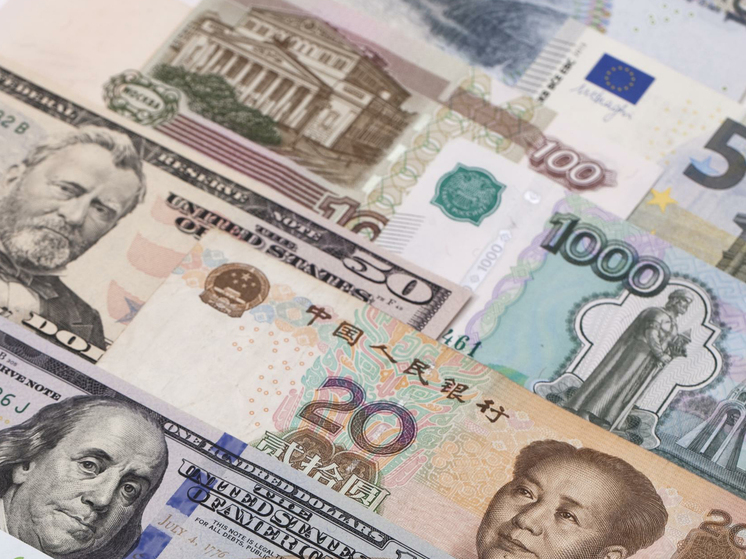Analyst Osadchiy: Bilateral trade resembles a “nipple system”
Two significant news have appeared related to settlements between Russia and China — one is definitely bad, the other is conditionally good. Let's start, according to tradition, with the bad: payments from Russian companies to Chinese counterparties stopped going through VTB Shanghai Bank, considered the flagship for transactions in China. And this is a fait accompli. Here’s a good one: as Chinese Ambassador to Moscow Zhang Hanhui said, financial institutions of both countries are studying the possibilities of cooperation on the Mir payment system. But these are just plans for now.

According to Russian importers, suppliers in China cannot receive money sent after June 20: it got stuck somewhere along the way. The problem may be related to updating banking software, as the Chinese side has repeatedly assured. However, such a scenario is unlikely, since the resumption of payments has already been repeatedly postponed. In reality, the situation is due to the very obvious risk of secondary sanctions against Chinese banks, because of which they prefer to suspend interaction with partners in the Russian Federation.
According to rough estimates, after the US Treasury imposed sanctions against the Moscow Exchange on June 12, the share of payments reaching Chinese credit institutions decreased by almost half. Since June 24, the Russian subsidiary of the parent Bank of China has refused to process payments in yuan from sanctioned banks of the Russian Federation.
Joe Biden brought about this disaster: in December 2023, the head of the White House, by decree, authorized the introduction of secondary sanctions against foreign banks for involvement in transactions related to supplies for the Russian defense industry. Violators risk being added to the SDN blacklist or restrictions on correspondent accounts in US credit institutions. Following this, several of the largest Chinese banks immediately stopped accepting payments from sanctioned banks from Russia.
«As practice shows, it is not possible to solve this problem even with the help of branches of Russian banks in China. Moreover, they are all under sanctions,» says Maxim Osadchiy, head of the analytical department of BKF Bank. «As a result, bilateral trade works according to the «nipple system»: yuan flows from China to Russia in a wide river — mainly for the export of raw materials, but in the opposite direction, from us to them, the yuan river is rapidly drying up, imports from the Celestial Empire are declining. As a result, the ruble is strengthening, but both exporters and the budget suffer from this.»
A similar snag recently arose in trade with Delhi — there was an “overstocking” of the illiquid rupee: the Indians actively increased purchases of oil from the Russian Federation, but in return they sold disproportionately little of their goods — due to the lack of demand from Russian buyers. So in trade with China we are stepping on the “Indian rake.”
Every day of downtime in operations costs Russian business billions of rubles and damages the reputation of both entrepreneurs and representative offices of Russian banks abroad. And there are practically no alternatives where cross-border payments would be made without restrictions, says Oleg Kalmanovich, chief analyst at Neomarkets. According to him, the situation is fraught with delays not only in payment, but also in the supply of Chinese products, which means a shortage of goods on the domestic Russian market.
“There are also doubts about the introduction of the Mir payment system in China, which, According to the ambassador, Moscow and Beijing are discussing,” Kalmanovich argues. — After all, in the text of the next 15th package of anti-Russian sanctions, a clause may appear banning its use, as was the case with the SPFS (Financial Message Transmission System of the Central Bank of the Russian Federation). This will be the end. As the practice of 2024 has shown, Chinese banks are clearly not seeking to fall under secondary sanctions.”
Problems with payments through VTB Shanghai began three weeks ago, and since then there has been no progress, notes Alexander Shneiderman, head of the sales and customer support department at Alfa-Forex. In his opinion, the situation is due to the low speed of switching from the usual routes of foreign exchange transactions to alternative ones — after the imposition of sanctions against the Moscow Exchange, where the bank purchased foreign currency.
“Beijing takes an extremely cautious position on transactions with Russian banks , says BitRiver Communications Director, economist Andrei Loboda. — The reason is clear: the Chinese financial system is closely connected with the American one; Banks — both public and private — are forced to take into account all risks with an eye on Washington. At the same time, any payment schemes that Moscow promotes abroad are vulnerable due to the presence of a second party accepting payments. In this regard, digital currencies are safer and more universal. However, their widespread use is still a long way off.”


